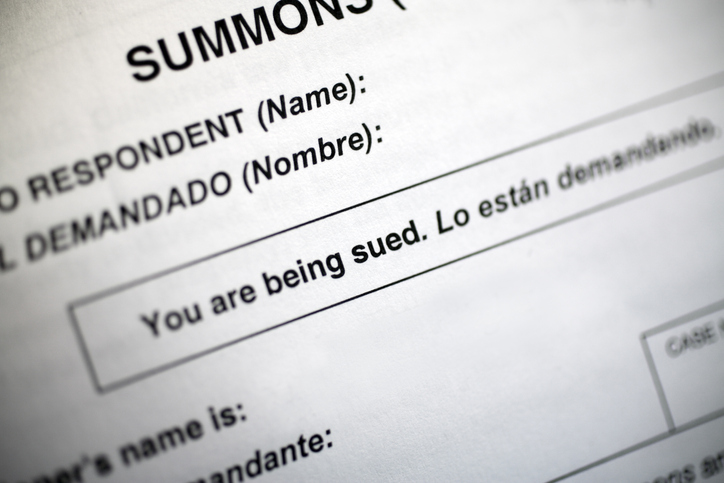
That’s a good question! We believe that a public agency never has the right to sue a requestor based on the Open Public Records Act (“OPRA”) because OPRA states that the right to bring an action under OPRA belongs “solely” to the requestor.
We talk about the cases under the following scenarios: (1) after a request has been denied; (2) before a request has been denied; (3) when fulfilling a series of requests from one person would substantially disrupt agency operations; and (4) if a requestor is harassing a public agency.
Here’s how the caselaw breaks down.
After a Request Has Been Denied
After a request has been denied, a public agency cannot sue a requestor. In In the Matter of the New Jersey Fireman Association Obligation to Provide Relief Applications Under the Open Public Records Act, which you can view here, the New Jersey Supreme Court held that a public agency cannot sue a requestor after the request has been denied. OPRA states that the right to bring a lawsuit belongs solely to the requester. N.J.S.A. 47:1A-6. The Supreme Court interpreted this language to mean that once an OPRA request is denied, the records requestor, and only the requestor, has the right to start a case in Superior Court or the Government Records Council.
Before a Request Has Been Denied
Before a request has been denied, the Supreme Court has not foreclosed the possibility that a public agency may sue a requestor if the request implicates a novel privacy question. In the Fire Association case, the Supreme Court explicitly stated that it was not deciding whether a public agency could sue a requestor prior to denying access to records. The Court stated: “We do not reach the question of whether a public entity may file a pre-denial declaratory judgment action when confronted with an unsettled question that has not been litigated before and that implicates OPRA s privacy prong, N.J.S.A. 47:1A-1.” Based on this language, the Court may be open to allowing a public agency to file an action before denying access to a request if the OPRA request raised a novel issue of privacy.
If a Request or Series of Requests Would Substantially Disrupt Agency Operations
In our view, a public agency may not sue a requestor simply because one of their requests or a series of requests would substantially disrupt agency operations. OPRA governs what an agency should do if they receive requests that would substantially disrupt agency operations, which is that the public agency has to attempt to reach a reasonable accommodation with the requestor. N.J.S.A. 47:1A-5(g). In 2017, the Township of Teaneck sued a requestor because he had filed hundreds of OPRA requests with Teaneck. (Disclosure, we represented the requestor). Teaneck asked the Trial Court to bar our client from making future OPRA requests and to declare that Teaneck had no obligation to respond to any pending OPRA requests. As part of a multi-faceted ruling, the Trial Court declined to provide the relief sought by Teaneck, in part because Teaneck never attempted to reach a reasonable accommodation with our client. Teaneck appealed on this and other issues, but the Appellate Division held that Teaneck’s appeal regarding “substantial disruption” was moot. Teaneck asked the Supreme Court to hear that issue, as well, but Teaneck’s request was denied.
Harassment
Limits can be placed on a person’s contact with a public agency or they can be restrained entirely if their conduct constitutes criminal harassment. Merely transmitting OPRA requests cannot constitute harassment. However, other behavior, when coupled with or made as part of a series of OPRA requests, can constitute harassment. The transmission of pornographic images to officials, threats to governmental staff, submitting OPRA requests that contain information that is not relevant to the request or the recipient’s duties, and repeated communications that are incoherent, individually or in combination, may constitute criminal harassment.
We want to emphasize that, in our view, the submission of OPRA requests, even dozens or hundreds, cannot constitute harassment. In this context, courts have only found “harassment” when the submission of OPRA requests is part of a broader pattern of criminal behavior.
